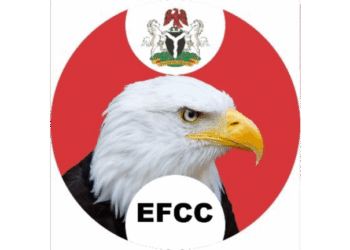Stakeholders in the Nigerian audit system are urging Mr. Shaakaa Chira, the newly appointed Auditor-General for the Federation, to adopt innovative approaches in fulfilling his crucial role, considering the significance of his office and the accountability challenges within the nation’s public institutions.
Inadequate funding is recognized as a significant challenge that Chira must address.
President Bola Ahmed Tinubu’s approval of Chira as the substantive Auditor-General for the Federation (AuGF) marks a significant step forward following the recommendations of the Federal Civil Service Commission (FCSC).
Chira’s confirmation by the Senate further solidifies his position as he takes over from Adolphus Aghughu, who retired last year.
The Executive Director of the Paradigm Leadership Support Initiative (PLSI), Mr. Olusegun Elemo, emphasizes the importance of timeliness in audit reports.
He points out the delay in submitting audit reports for the years 2020, 2021, and 2022, which poses a significant issue.
He highlights the need for the National Assembly to pass the pending audit bill, which would provide a legal framework to streamline audit processes and ensure accountability.
Mr. Elemo recognizes the need to go beyond traditional financial and compliance audits and suggests that Chira, with his background as a performance auditor, should bring innovation to audit methodologies.
The focus should shift towards conducting more comprehensive audits that delve deeper into accountability challenges in Nigeria.
Resource allocation is a crucial factor in achieving effective audits. The current level of funding for the Auditor-General’s office is inadequate.
Despite the annual expenditure of trillions of Naira, only a fraction is allocated to auditing, with the majority directed towards personnel and recurrent expenses.
This underfunding poses a significant challenge in holding government agencies accountable.
Mr. Ferdinand Onyema, a former staff of the Office of the Auditor-General, underscores the need to address funding and staffing issues.
He points out that the lack of recruitment in recent years has resulted in a shortage of manpower.
Adequate resources are essential to equip the office with the tools and personnel needed to fulfill its constitutional role.
Mr. Onyema emphasizes that the Auditor-General’s Office is constitutionally empowered to combat corruption.
Proper funding and resources are indispensable for this task, and the President’s commitment to fighting corruption should be reflected in substantial support for the Auditor-General’s Office.
The Auditor-General for the federation has the authority to audit all income and expenditure of the Federal Government of Nigeria, with certain exceptions.
However, there is a need for clear interpretation or amendment regarding “periodic checks” in areas where the constitution restricts the office’s auditing scope.










